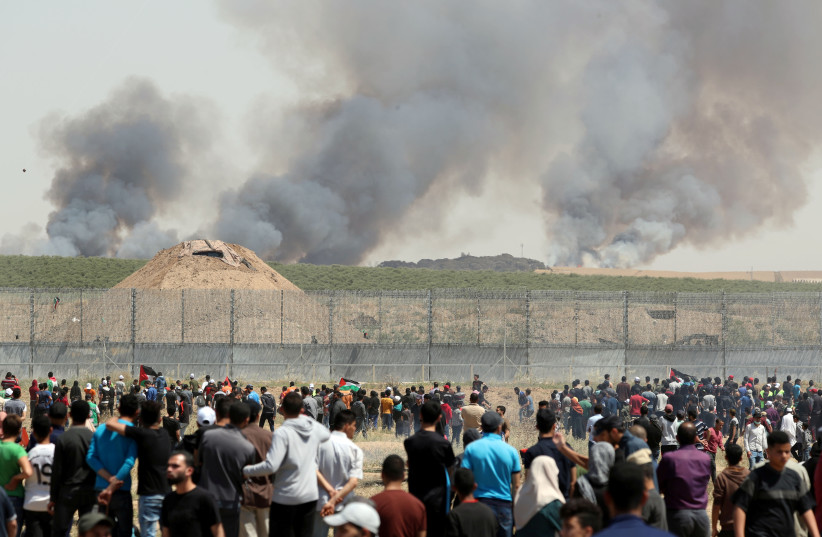Last week, a red line was crossed live on TV, during a discussion panel on Channel 14.
Itamar Fleischman, a veteran commentator who was participating in the conversation on the civil unrest that took place during Operation Guardian of the Walls in May, suggested that the best way to deal with Palestinian nationalist sentiment among Arab Israelis was to make them live in constant fear.
“The bottom line is that we have a situation in which Arabs forgot the Nakba,” Fleischman said. “And the solution is to remind them of the Nakba. We should tell them as soon as now that if they don’t start to com to their senses, and if they keep trying to murder our children, their next stop is beyond the Jordan River or in al-Yarmuk [refugee] camp in Syria.”
When asked by his fellow panel members who in this current government is bold enough to “remind” Israel’s Arabs of this notion, he replied: “If things continue, it will happen… We will load them onto trucks and throw them out beyond the border. And this is how it will end.”
Fleischman is not alone.
On Thursday, 103FM radio anchor Yinon Magal told Arab commentator Afif Abu-Much that “if you’ll keep killing Jews” – as if all Arabs are murderers – “we will exile you again.”

It is important to note that Fleishman and Magal do not come from extreme right-wing groups. Fleischman is a former Yediot Aharonot journalist who also served as an adviser to Naftali Bennett. Magal, an anchor on a radio station with no particular political affiliation, was an MK in the Bayit Yehudi party, which is considered the more moderate among the religious-Zionist parties.
That people of influence feel comfortable making such remarks is mind-blowing, but not unprecedented.
In the midst of coalition talks in April, when Likud leader Benjamin Netanyahu pressured MK Bezalel Smotrich and his party to join a government supported by Ra’am. The latter explained in a news conference that it will never happen. “The Arabs are citizens of Israel, at least for now,” Smotrich told inquiring journalists.
This is no slip of the tongue. During a heated Knesset session in October, Smotrich addressed the Arab MKs and said: “I am not holding any conversations with you, you anti-Zionists. You are supporters of terror, enemies. You are [here] due to a mistake because [Israel’s first prime minister David] Ben-Gurion didn’t finish the job and throw you out in 1948.”
When such people call for ethnic cleansing out loud in mainstream media, it is time to raise a bright red flag.
The Jewish people should be particularly sensitive to such racist remarks. People who know firsthand the outcome of extreme racism should be the first to cry out when they witness or hear a form of institutionalized racism.
Arabs in Israel should not have to live in fear of possible expulsion. They are not terrorists, and the vast majority of them are ordinary law-abiding citizens who hate violence.
Yes, there is an ongoing conflict between Israeli Jews and the Palestinian people. And that often spills over into Israel and creates tension between Arab Israelis and Jews. The solution, though, should be implemented through police enforcement and the legal system, not by a threat of expulsion. It is a slippery slope that will lead Arabs in Israel to feel even more like second-class citizens.
Do we want Salman Zarqa, Israel’s corona czar, to be made to feel inferior? Do we want Supreme Court Justice George Karra to think he is a second-class citizen?
Arabs in Israel have come a long way since the abolition of Martial Law in 1966. Since then, they have assimilated into almost every sphere of society, and this year we witnessed one of the most important developments in Israel’s history: for the first time, an Arab party joined the coalition.
For some, this is not history in the making but an opportunity to score cheap political points and increase incitement against Arab citizens. They don’t care about the future of Israel as a democratic state. They want to see the current government fall, no matter the price.
This is the time to tell them to stop.
The best way to quell Palestinian nationalism within Israel is to make Arab citizens feel that they belong.
We are on the right track. Let’s not get derailed.
